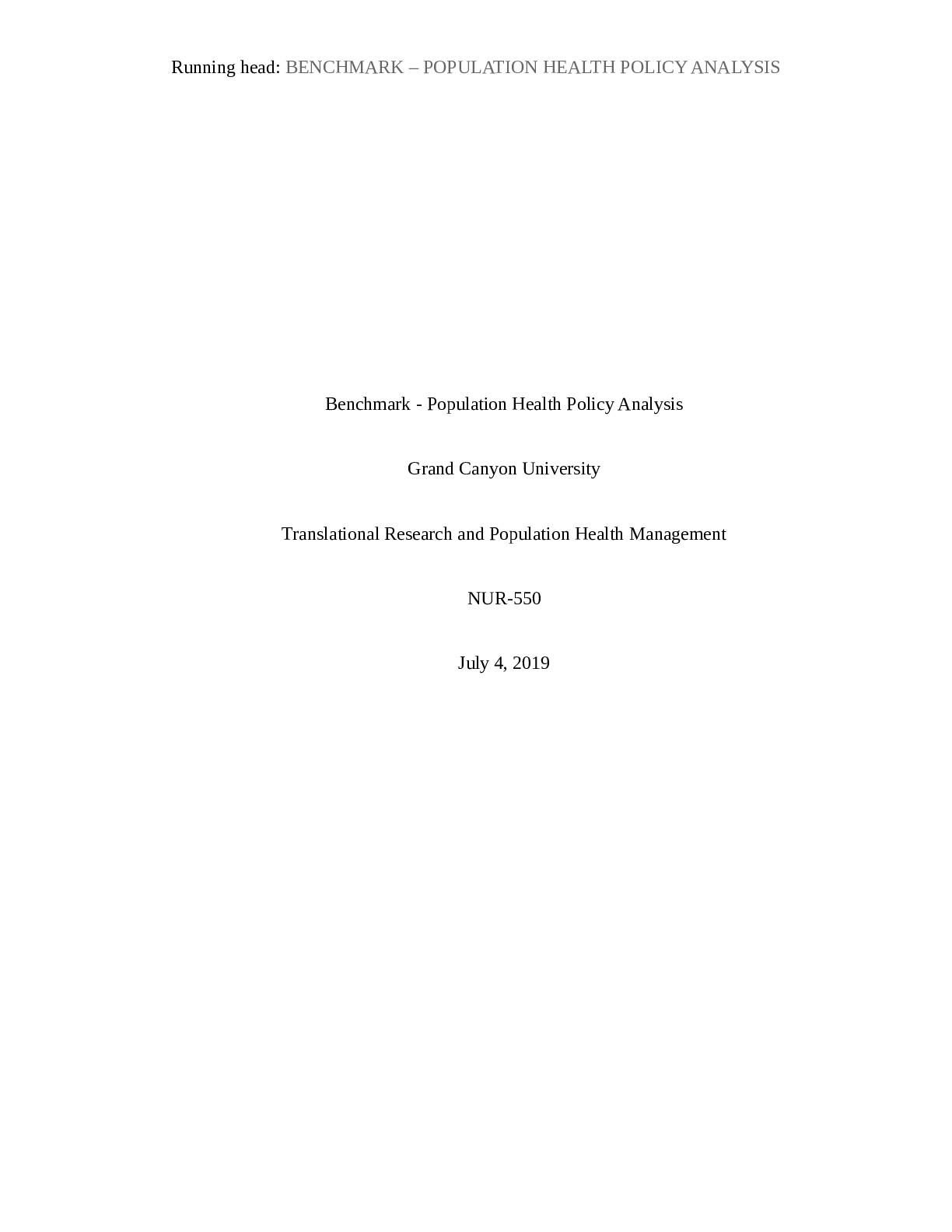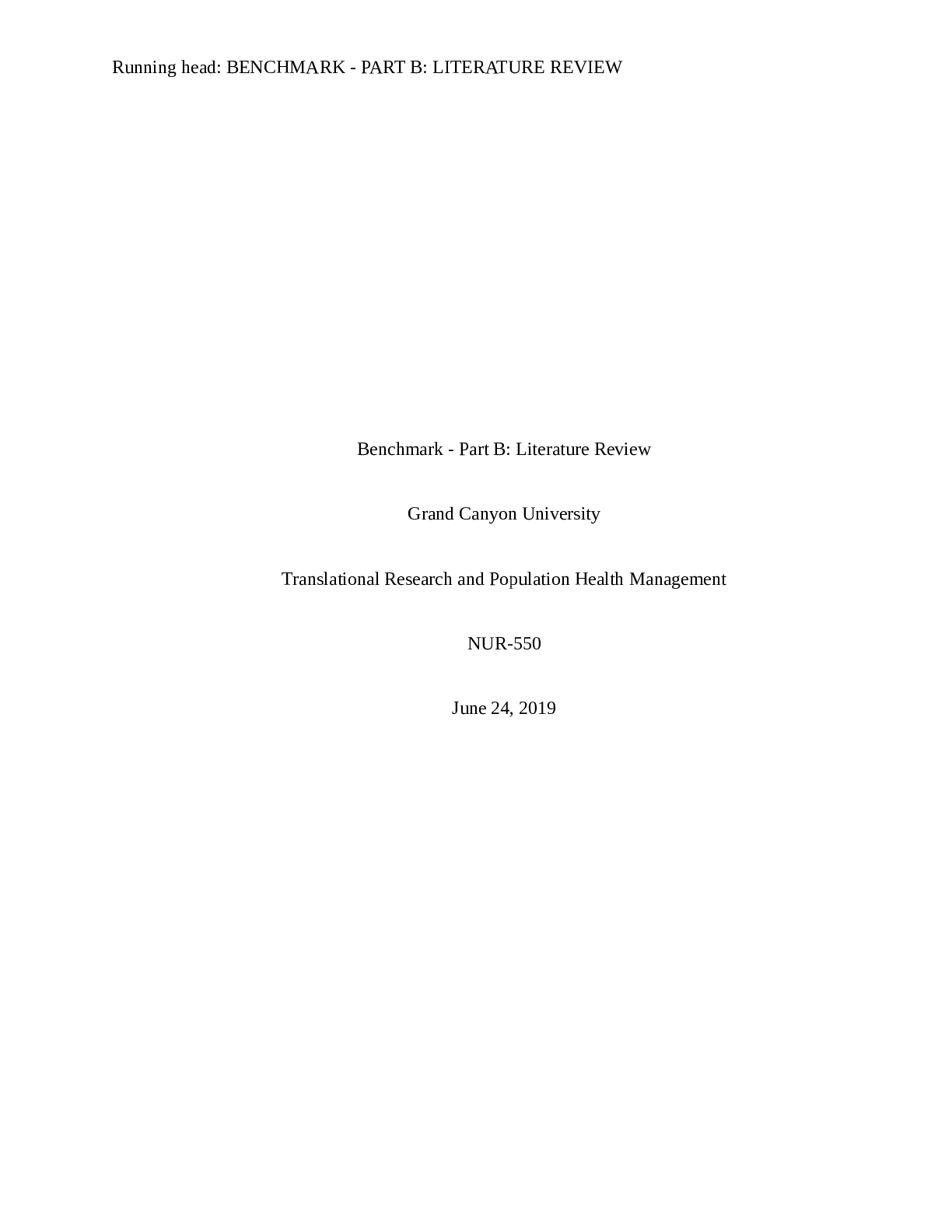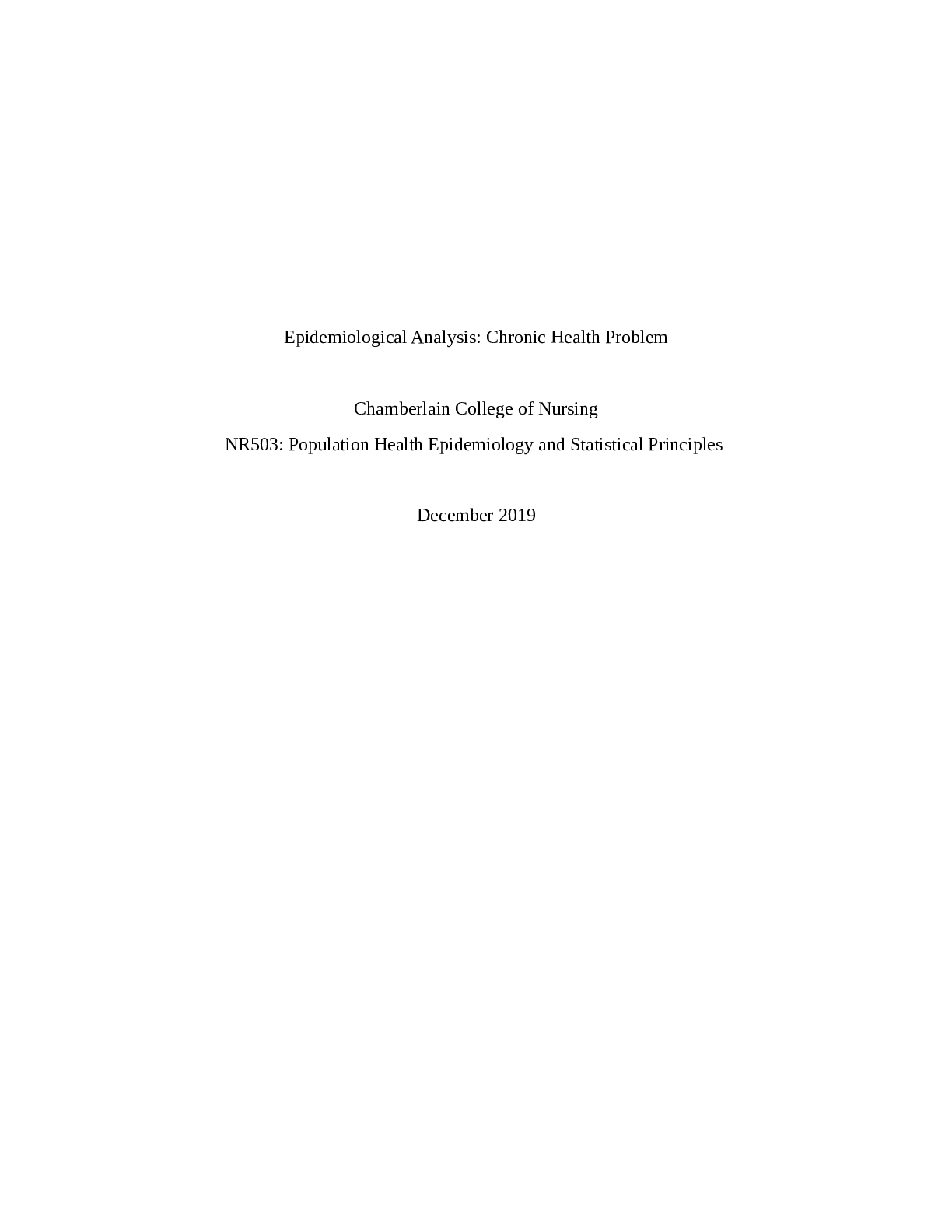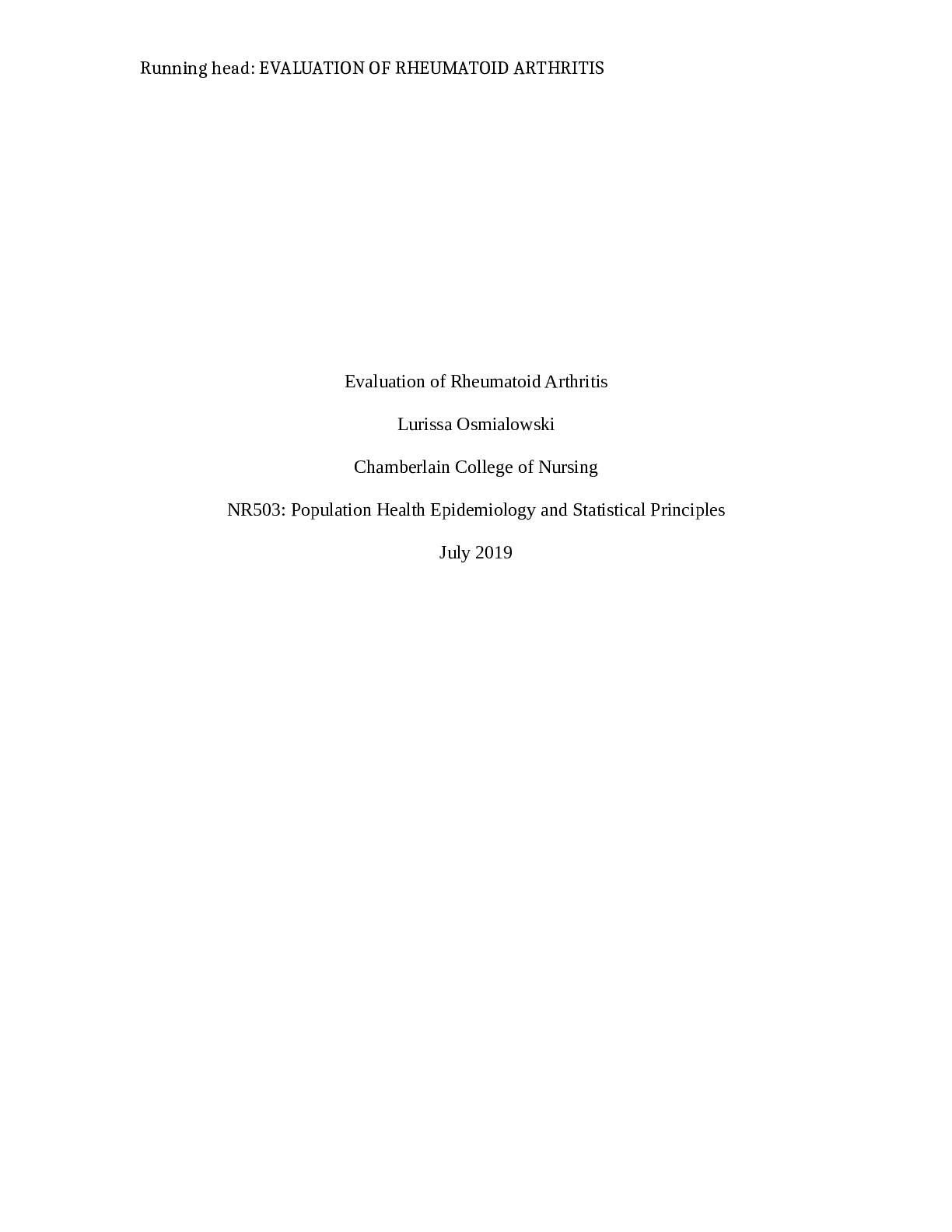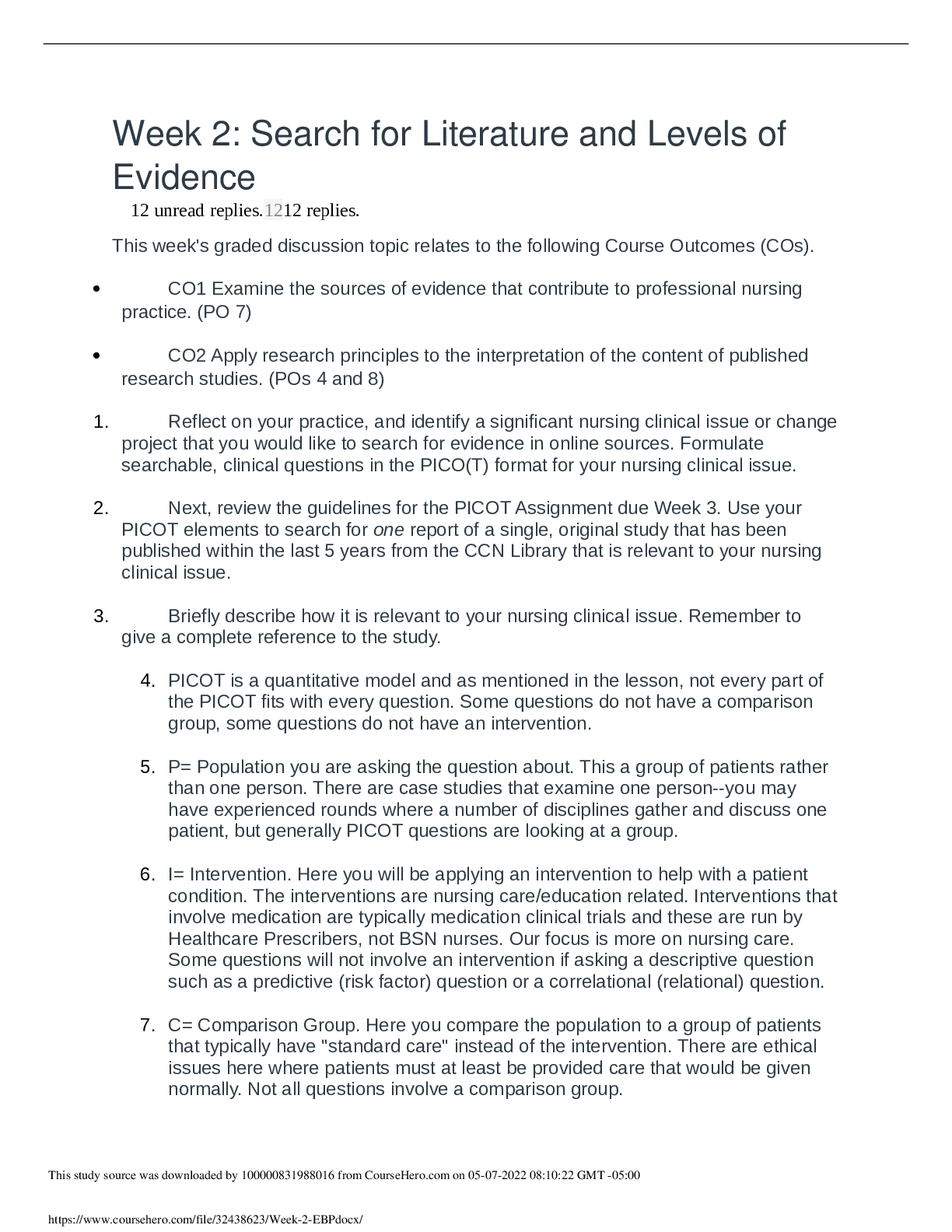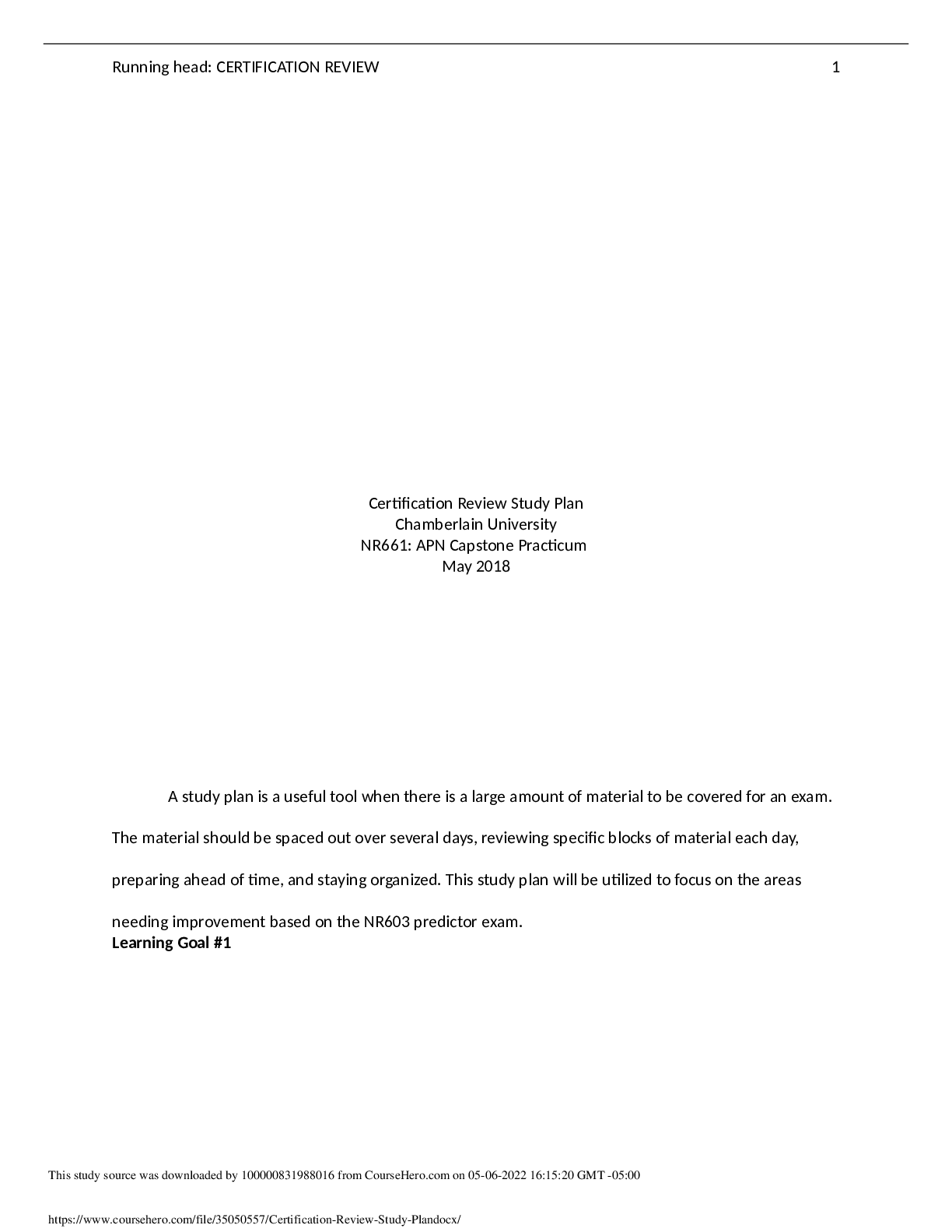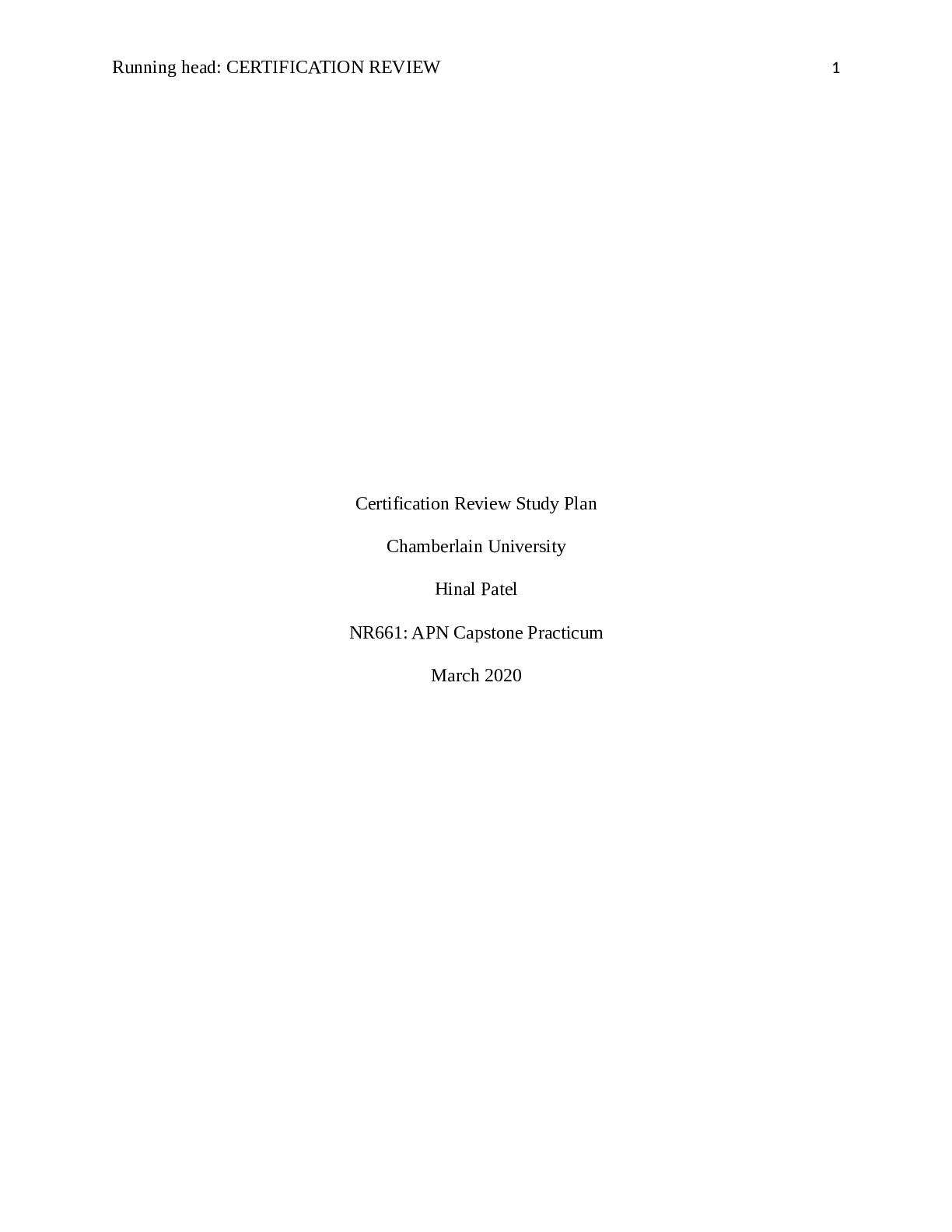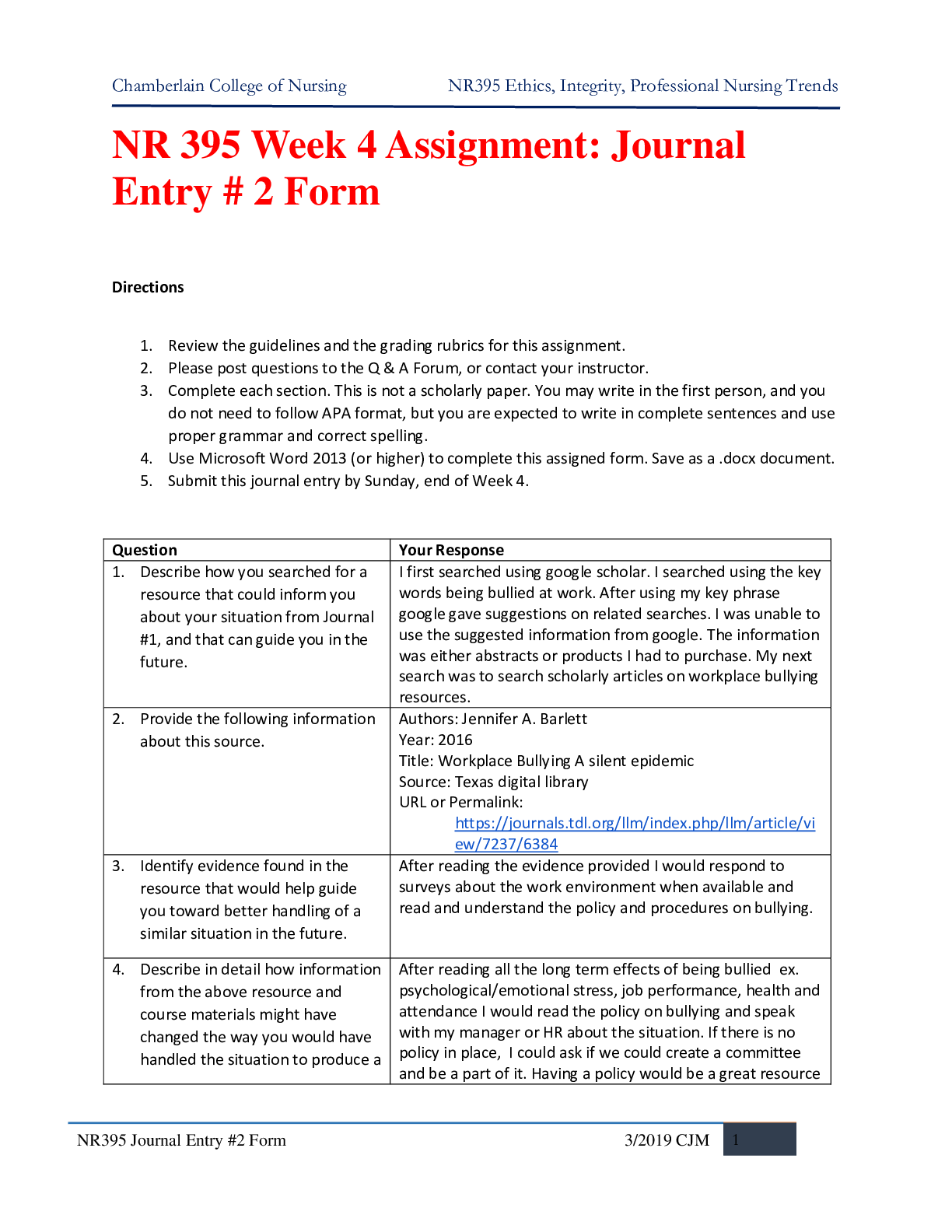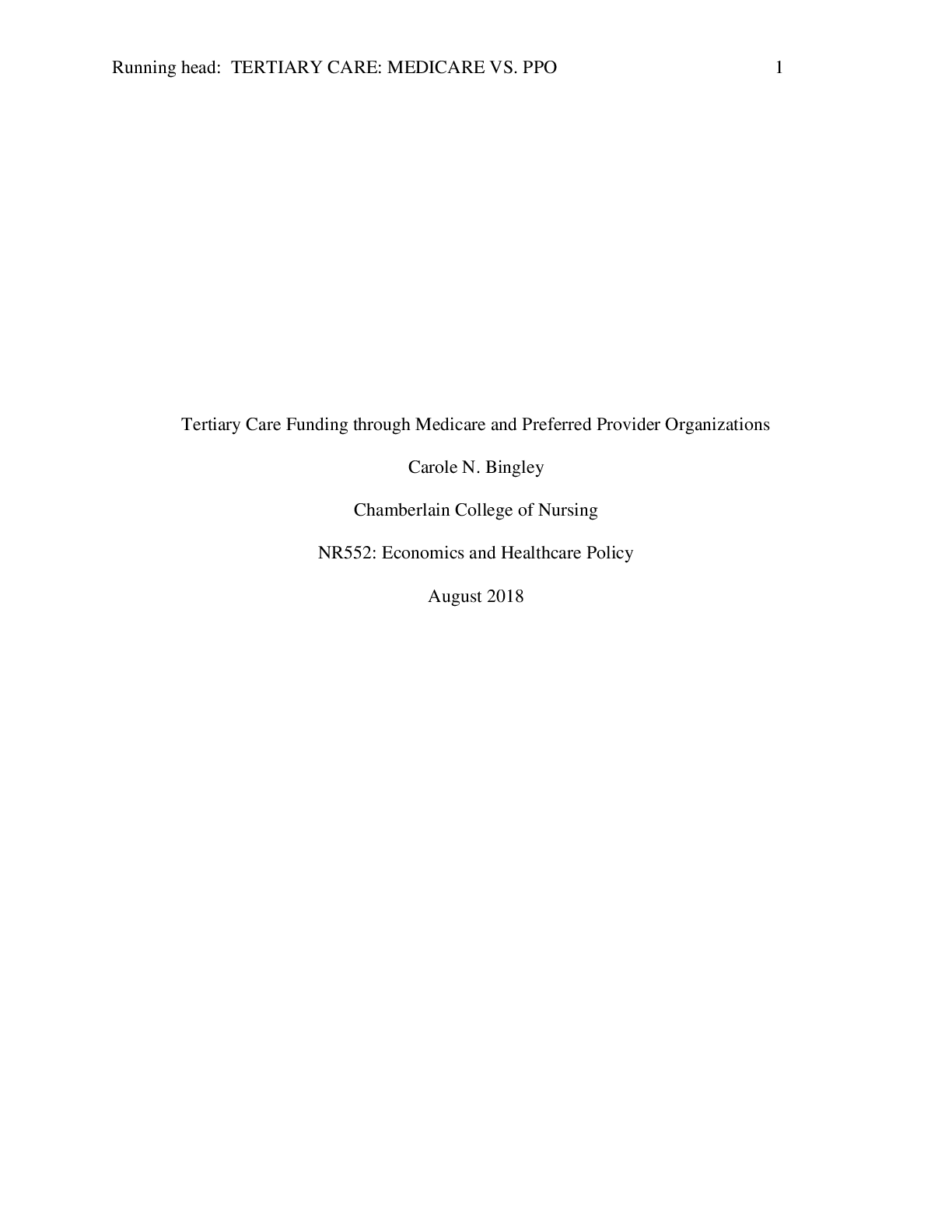Business > ESSAY > BUS 607 Week 4 Assignment Ethical Consideration of Creditors’ Rights and Bankruptcy (All)
BUS 607 Week 4 Assignment Ethical Consideration of Creditors’ Rights and Bankruptcy
Document Content and Description Below
RUNNING HEADER: Ethical Consideration Ethical Consideration of Creditors’ Rights and Bankruptcy BUS 607 Business Law for the Accountant Mr. 2016 This study source was downloaded by 100000831988... 016 from CourseHero.com on 04-29-2022 13:50:51 GMT -05:00 https://www.coursehero.com/file/19607103/Ethical-Consideration-of-Creditors-Rights-and-Bankruptcy/ 2 Ethical Consideration Ethical Consideration of Creditors’ Rights and Bankruptcy In 1898, the U.S. Congress first enacted federal bankruptcy legislation. The intent was to grant legal protections through the courts for debtors who find themselves in overwhelming financial circumstances in which they cannot recover. Bankruptcy grants these debtors the right to a fresh start. In many cases, bankruptcy erases all debt. The recent Congress of 2005 enacted the Bankruptcy Reform Act and today’s society functions with the laws of the Bankruptcy Code. These modern laws attempt to protect both the debtor and the creditor. The Bankruptcy Code lays out all ethical considerations and this paper illustrates some of basics of the law. As described by Miller, (2014), there are main goals for bankruptcy. One goal is designed to protect the debtor by eliminating what is owed to creditors and granting the debtor a clean start without overwhelming financial burden. The other goal, which is designed to protect the creditor means to ensure that all creditors have the fair chance of being awarded the debtor’s assets. Congress attempts to seek an equal balance in bankruptcy so the outcome is a win for both the debtor and the creditor. The last enactment of the bankruptcy laws in 2005 swayed more towards protecting the rights of the creditors. This change made filing bankruptcy slightly more difficult for debtors as the common belief at the time was that debtors evaded all responsibility of debt and the creditors suffered all the consequences. The 2005 enactment made the debtors take on a least a portion of the debt if he or she was able to pay the debt. There are different chapters of bankruptcy that debtors are allowed to file. Chapter 7 is the most common filing and generally produces the best outcome for the debtor. Chapter 7 essentially liquidates all debt, whether secured or unsecured. Debtors must passed the means test as a prerequisite of being granted Chapter 7. Essentially, the means test weeds out those from an upper income that can afford to pay most or all of their debt. Chapter 7 is form common people. This study source was downloaded by 100000831988016 from CourseHero.com on 04-29-2022 13:50:51 GMT -05:00 https://www.coursehero.com/file/19607103/Ethical-Consideration-of-Creditors-Rights-and-Bankruptcy/ 3 Ethical Consideration Once a debtor files for bankruptcy and the process begins, creditors are no longer allowed to contact the debtor in order to collect the owed balance. The law fully protects the debtor from harassment. Once the bankruptcy is discharged, the debtor is free and clear of all debts that were included in the bankruptcy. Creditors are protected by the law as well. As previously stated, one such protection is the means test. If it is determined that a debtor has the means to repay the debt in question, bankruptcy can be denied. Additionally, the law favors secured creditors over unsecured. The secured creditor has the right to collect collateral. Also, if it is proven that the debtor was fraudulent in conduct, or was intentionally deceptive, bankruptcy can be denied. Furthermore, depending on what chapter of bankruptcy is filed, a debtors funds may be reorganized and at least partial repayment is made to the creditor. The creditor self-help provision of the UCC’s Article 9 is ethical. When a debtor enters into contract with a creditor based upon the f [Show More]
Last updated: 2 years ago
Preview 1 out of 7 pages
.png)
Buy this document to get the full access instantly
Instant Download Access after purchase
Buy NowInstant download
We Accept:

Reviews( 0 )
$10.00
Can't find what you want? Try our AI powered Search
Document information
Connected school, study & course
About the document
Uploaded On
Apr 29, 2022
Number of pages
7
Written in
Additional information
This document has been written for:
Uploaded
Apr 29, 2022
Downloads
0
Views
157


